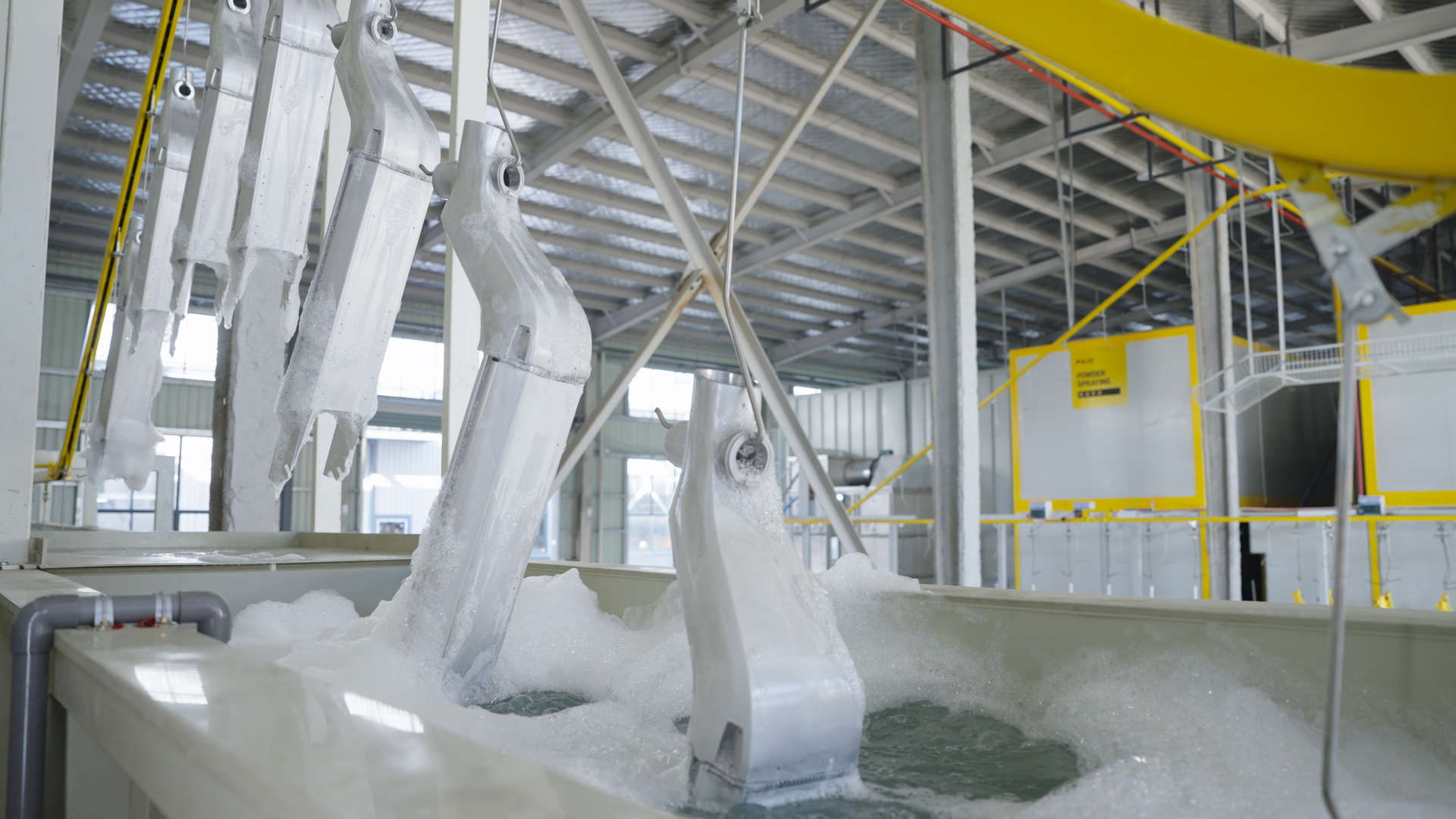In the e-mobility industry, where profit margins are often squeezed by material costs and production expenses, clients don’t just need an ODM that delivers quality—they need one that delivers quality without breaking the budget. Many ODMs struggle here, either cutting corners to lower costs or passing unexpected expenses to clients. PXID stands out by building its ODM services around cost controllability, achieved through technical standardization of core components and continuous optimization of manufacturing processes. With 38 utility patents, a 25,000㎡ smart factory optimized for efficiency, and a track record of keeping projects on budget (even for large-scale orders), PXID proves that ODM excellence doesn’t require sacrificing cost predictability.
Technical Standardization: Reducing Costs Without Compromising Customization
A common myth in ODM is that customization means high costs—but PXID’s technical standardization model flips this script. The company has developed a library of standardized core components (motors, battery management systems, frame structures) that can be adapted to different client needs, eliminating the expense of building fully custom parts for every project. These standardized components are backed by patents and rigorous testing, ensuring they meet performance standards while cutting development and production costs.
Take the S6 e-bike, which generated $150 million in revenue across 30+ countries. Instead of designing a new motor from scratch, PXID used its standardized 250W brushless motor—already tested for efficiency and durability—and modified only the mounting bracket to fit the e-bike’s frame. This reduced motor development costs by 40% compared to a custom design. Similarly, for a startup client’s compact e-scooter, PXID adapted its standardized lithium-ion battery pack (with a proven safety record) by adjusting the cell arrangement to fit the scooter’s smaller frame—cutting battery costs by 25% while maintaining range and charging speed. This balance of standardization and adaptability lets clients get customized products at a fraction of the cost of fully bespoke development.

Process Optimization: Cutting Waste in Every Production Stage
PXID’s cost control extends beyond components to the manufacturing process itself, where continuous optimization eliminates waste, reduces labor time, and lowers material usage. The company’s 25,000㎡ smart factory uses data-driven tools to identify inefficiencies—from excess material in mold casting to slow assembly line bottlenecks—and refine processes accordingly.
One key optimization is in magnesium alloy processing, a material PXID specializes in for e-mobility frames. Traditional magnesium alloy casting often results in 15–20% material waste due to uneven cooling. PXID’s team developed a proprietary mold heating system (backed by 2 invention patents) that reduces waste to just 5% by ensuring uniform temperature distribution. For Wheels’ $250 million order of 80,000 shared e-scooters, this optimization saved over 12 tons of magnesium alloy—cutting material costs by $180,000 for the project. Another process improvement is in automated assembly: PXID reconfigured its scooter assembly lines to use modular workstations, reducing the time to build one unit from 45 minutes to 32 minutes. For Urent’s 30,000-unit order, this shaved 650 hours off total production time, lowering labor costs by 18%.
Cost Transparency: Keeping Clients in Control of Budgets
Cost controllability means more than just lowering expenses—it means keeping clients informed every step of the way. PXID provides clients with a detailed, transparent cost breakdown (from material sourcing to shipping) at the start of each project, with real-time updates if adjustments are needed. This eliminates surprise fees and lets clients make informed decisions about where to allocate budget.
For example, when a retail client ordering the S6 e-bike requested a cost review halfway through production, PXID’s team shared data showing that bulk ordering magnesium alloy had reduced material costs by 8% compared to initial projections. The client then chose to reinvest those savings into upgrading the e-bike’s display screen—enhancing the product without increasing the total budget. For large orders like Wheels’ 80,000 scooters, PXID provides weekly cost reports, tracking expenses against the agreed-upon budget and flagging potential overruns early (such as a temporary spike in battery material prices) so clients can adjust plans proactively.

Scaled Cost Savings: Lower Per-Unit Costs for High-Volume Orders
PXID’s cost control model shines brightest for high-volume orders, where economies of scale and process efficiency translate to significant per-unit savings. The company’s factory is designed to handle large production runs without sacrificing cost discipline, as seen in its work with shared mobility and retail clients.
For Urent’s 30,000 shared scooters, PXID negotiated long-term contracts with material suppliers, locking in lower prices for magnesium alloy and motors. This, combined with optimized assembly processes, reduced the per-unit cost by 12% compared to a smaller 5,000-unit order. For retail clients like Costco, which stocks the S6 e-bike in large quantities, PXID uses “batch production” to streamline workflow—producing 5,000 e-bikes at a time instead of smaller batches. This cuts setup time between runs by 60%, lowering per-unit labor costs and ensuring the e-bike stays within the retailer’s target price point for mass consumers.
Why Cost Controllability Matters: PXID’s Client Success Stories
PXID’s focus on cost control has helped clients achieve measurable business results. A startup client that used PXID’s standardized components launched its e-scooter at a 15% lower price than competitors, capturing 10% of the local market in its first year. Wheels’ 80,000-scooter order came in 5% under budget, letting the company invest in additional fleet maintenance tools. The S6 e-bike’s cost-efficient production helped it become a top seller at Costco, with consistent margins even as retail prices remained competitive.
These successes are backed by PXID’s credentials: as a National High-Tech Enterprise and Jiangsu Provincial Industrial Design Center, the company has proven its ability to balance technical innovation with cost discipline. For e-mobility brands, this balance is invaluable—especially in a market where price sensitivity and profit pressure are constant challenges.
In an industry where every dollar counts, PXID’s ODM services offer more than just production—they offer peace of mind. By combining technical standardization, process optimization, and transparent reporting, PXID delivers customized, high-quality e-mobility products that stay on budget. For brands seeking an ODM partner that understands the importance of cost control, PXID’s approach is the solution.
Partner with PXID, and get an ODM service that builds great products and protects your bottom line.
For more information about PXID ODM services and successful cases of electric bicycles, electric motorcycles, and electric scooter design, and production, please visit https://www.pxid.com/download/
or contact our professional team to obtain customized solutions.



























 Facebook
Facebook Twitter
Twitter Youtube
Youtube Instagram
Instagram Linkedin
Linkedin Behance
Behance tiktok
tiktok

